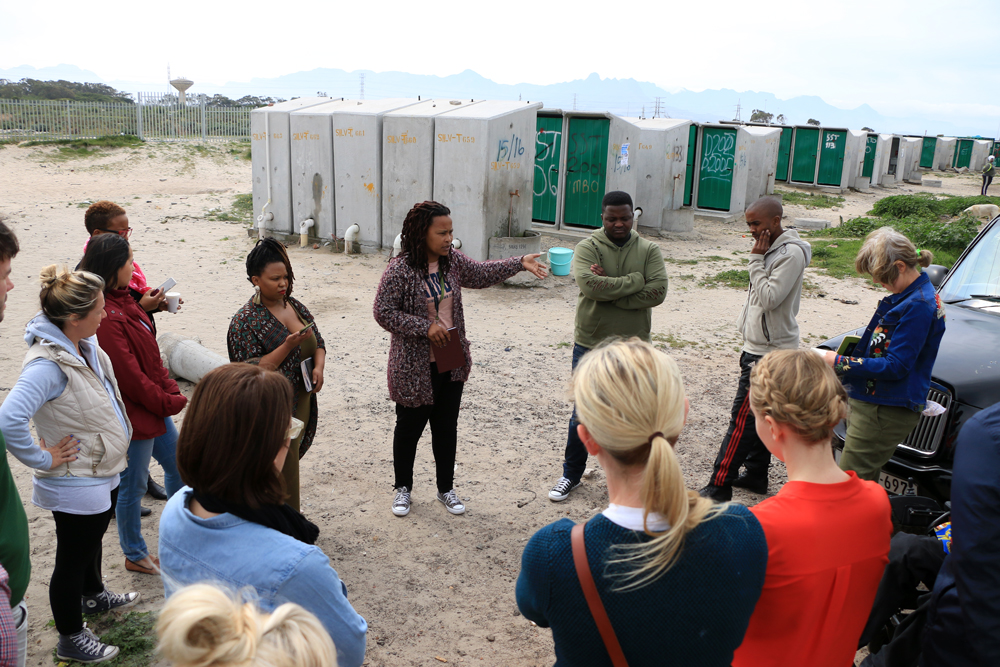The Nelson Mandela School prioritises investing in capacity development for Africa’s public sector leaders, with a deepening focus on women’s leadership.
The School partnered with the South African Local Government Association (SALGA) in 2019 - 2020 to implement a comprehensive women’s leadership development programme targeting women in middle and senior management across the local government sector in South Africa. The Nelson Mandela School of Public Governance also partnered with the Konrad Adenauer Stiftung’s Rule of Law Programme for Sub Saharan Africa (KAS) to deliver a leadership programme specifically developed for African women working in the social justice and rule of law sector.
Local Government Women’s Leadership Development Programme
The South African Local Government Association (SALGA) appointed the Nelson Mandela School of Public Governance at the University of Cape Town, supported by Zenande Leadership Consulting, to develop and implement the Local Government Women’s Leadership Development Programme on its behalf.
The programme was designed to build women councillors and managers’ personal agency, capacity, resilience and solidarity to ensure that they are empowered and equipped with the requisite skills and competencies to advance transformation and address the complex challenges of local government. The comprehensive leadership programme sought to promote diversity in leadership, to enhance women’s leadership capacity and amplify their impact in the local government sphere and the communities they serve.
This highly selective programme is a unique offering specifically tailored to the South African context. The programme focuses especially on emotionally intelligent, ethical, people-centered leadership and innovative practice in the public sector.
In joining the programme, participants accessed not only exceptional leadership and professional development content and personalised support, but joined a powerful and nurturing network of change-makers across the country that will endure beyond the programme’s duration.
Leading in Public Life: Women, Influence, Power Programme
Women face persistent barriers that hamper their participation at every level of authority, inclusive of decision-making, access to economic opportunities and agency within personal and professional spaces. In response to these challenges and to advance greater gender equality, the Nelson Mandela School of Public Governance at the University of Cape Town and the Konrad Adenauer Stiftung partners to deliver the Leading in Public Life: Women, Influence, Power Programme.
The first iteration of the programme took place from 5-7 June 2019 in Cape Town, South Africa, and sought to promote and strengthen the inclusive representation of women aspiring to or currently in political and public leadership roles and in this way improve the quality of legislation and rule of law. 20 women working in sub-Saharan Africa were selected following a nominations and application process. The inaugural cohort hailed from six African countries, namely, Botswana (1), The Gambia (1), Kenya (6), Nigeria (2), South Africa (7) and Zimbabwe (3).
The second iteration of the programme was offered as a 9-week online course, with 25 women working in the rule of law and social justice sector from across Africa; namely Botswana (3), Ethiopia (1), Gambia (2), Ghana (1), Kenya (11), Malawi (1), Nigeria (2), South Africa (2), Zambia (1) and Zimbabwe (1). This skills programme comprised a number of different elements – including live online sessions, coaching, meditation/mindfulness practice as well as webinars and dialogues. Each component was carefully crafted to support participants’ learning journeys and catalyse a dynamic network of peer support.

Atlantic Fellows for Social and Economic Equity programme
In 2016, the Nelson Mandela School of Public Governance became a learning partner of the London School of Economics and Political Science, International Inequalities Institute’s Atlantic Fellows for Social and Economic Equity programme (AFSEE), which is one of seven Atlantic Fellows programmes operating around the world.
The AFSEE programme aims to foster a values led global community of leaders working together across disciplines and borders to advance equity, justice and human dignity. This vibrant network involves Atlantic Fellows, as well as learning partners across the world that are deeply engaged in understanding and addressing inequalities.
UCT contributes to the AFSEE programme by contributing to the Fellowship curriculum and teaching, providing direct support to Fellows, and collaborating with the International Inequalities Institute on joint research efforts related to documenting and addressing inequalities in Africa.
Who should apply to the Fellowship?
View the AFSEE website to find out more about the selection and eligibility criteria for Fellows and the application process.

